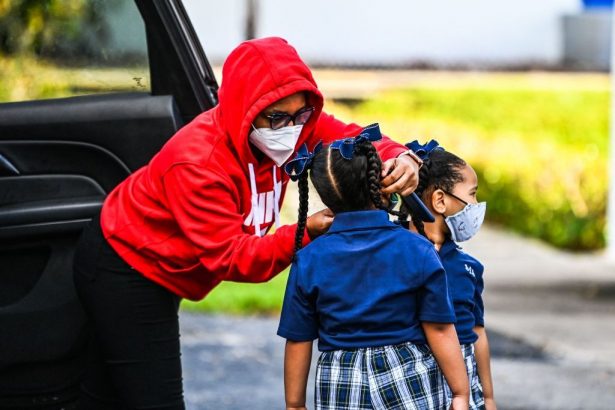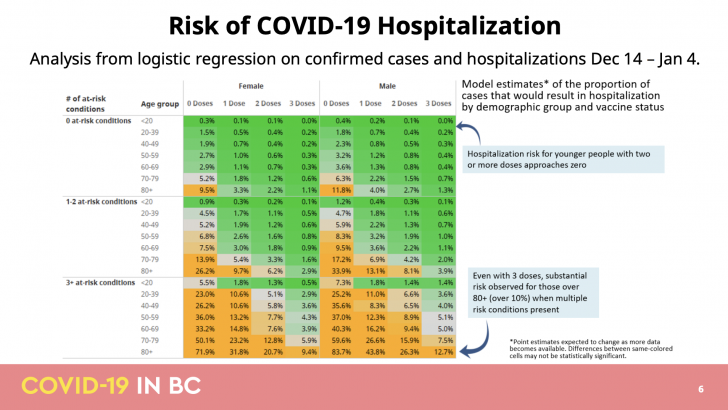This Week in Pandemic Education Policy: New Data on ‘Long COVID’ and Kids, the Shifting Landscape of Mask Mandates & More

Get stories like this delivered straight to your inbox. Sign up for The 74 Newsletter
This is our weekly briefing on how the pandemic is shaping schools and education policy, vetted, as always, by AEI Visiting Fellow John Bailey. Click here to see the full archive. Get this weekly roundup, as well as rolling daily updates, delivered straight to your inbox — sign up for The 74 Newsletter.
Controlled Studies Ease Worries of Widespread Long COVID in Kids: Via Stat.
- “Over the last two years, experts’ understanding of long COVID in children has deepened. Several peer-reviewed studies now include control groups consisting of children who did not have COVID-19 but who have lived through the same pandemic conditions — loneliness, interrupted schooling, anxiety, tensions at home, the loss of loved ones and the like.These studies indicate that long COVID in children is rare and, when it does occur, is short-lived.”
- “In one study, 97% of children ages 5 to 11 with COVID-19 recovered completely within four weeks. In the small group that had bothersome symptoms after four weeks (usually loss of smell or fatigue), most had fully recovered by eight weeks.”
- “Fear has had a strong hold on Americans for more than two years, and it is a hard thing to let go of. But we owe it to children to follow the science: Children are more likely to suffer from pandemic-associated symptoms than from infection-associated symptoms. School policies should reflect this reality.”
- “Families and school staff need to be given factual, reassuring messaging about the actual risks of COVID-19 to children, put away the masks in most school settings — at least for now — and restore a sense of normalcy to their day-to-day lives.”

The Big Three — February 18, 2022
The state of mask mandates:
- Education Secretary Miguel Cardona warns easing mask mandates too early can cause disruption in schools.
- U.S. Surgeon General Vivek Murthy, when asked by the Associated Press about a future without masks: “I can imagine that future. I can’t tell you if it’s coming in a couple of months or in six months or in 12 months.”
- As schools drop mask mandates, parents of kids with disabilities prepare to fight, Time reports.
- What’s Behind the Blue-State COVID Rules Awakening? Via Kristen Soltis Anderson’s excellent Codebook.
- The “turn away from COVID restrictions seems less about them having become deeply unpopular overnight, but rather that public opinion has soured on our ability to win the fight against COVID at all.”
- “This is the most compelling datapoint driving the notion that people are absolutely over it and hoping to be freed from whatever restrictions remain. Even progressives who may feel like they can’t come out and say to a pollster, ‘I’m ready to stop wearing a mask at Safeway’ can at least say they are fed up with everything and ready to move on in a more general sense.”
- “The CDC is reviewing its mask guidance, shifting its focus to COVID hospitalizations as a key measure of the severity of the outbreak and future guide for determining whether health safety protocols need to be tightened,” CNBC reports.
- “Nothing has been finalized yet, but the CDC is considering a new benchmark for whether masks are needed, basing it on the level of severe disease and hospitalizations in a given community, two people familiar with the situation said.”
- “Senior administration officials have asked [CDC Director Dr. Rochelle] Walensky to provide an update on masks before President Joe Biden’s State of the Union address on March 1, one of the people said.”
- Colorado Gov. Jared Polis: “There’s no right or wrong here. … If you’re somebody who doesn’t like wearing masks, respect those who do. If you’re somebody who likes wearing masks, please respect those who don’t.”

Omicron Hits Youngest Kids the Hardest: New study in the CDC’s Morbidity and Mortality Weekly Report.
- Once the Omicron variant became dominant, hospitalizations of children and adolescents reached levels that were four times higher than those of Delta’s peak. The largest increase in hospitalizations was in children ages 0 to 4, who weren’t eligible for vaccination.
- During the study period, adolescents ages 12 to 17 were the only pediatric group approved for COVID-19 vaccination during the entire study period. When researchers compared their hospitalizations to those of unvaccinated peers, they found levels were six times higher in the unvaccinated group.
COVID-19 Takes Serious Toll on Heart Health: Science on the first large study to assess cardiovascular outcomes one year after SARS-CoV-2 infection.
- “In an analysis of more than 11 million U.S. veterans’ health records, researchers found the risk of 20 different heart and vessel maladies was substantially increased in veterans who had COVID-19 one year earlier, compared with those who didn’t.”
- “The risk rose with severity of initial disease and extended to every outcome the team examined, including heart attacks, arrhythmias, strokes, cardiac arrest and more. Even people who never went to the hospital had more cardiovascular disease than those who were never infected.”
- “For example, veterans who had had COVID-19 faced a 72% higher risk of heart failure after 12 months than those in a control group who didn’t test positive.”
- “‘In the post-COVID era, COVID might become the highest risk factor for cardiovascular outcomes,’ greater than well-documented risks such as smoking and obesity, says Larisa Tereshchenko, a cardiologist and biostatistician at the Cleveland Clinic.”
Federal Updates
Education Department: Urged states to develop assessment systems that use multiple measures of academic achievement and follow a competency-based model.
White House and Federal Communications Commission: Announced more than 10 million households are enrolled in the Affordable Connectivity Program.
COVID Supplemental: The administration may ask for an additional $30 billion as part of its COVID response. Details from Politico and the Associated Press.
- “The request comes amid Biden officials’ warnings that the administration is running low on money for its domestic COVID-19 response, following three months spent battling the Omicron variant that drove cases and hospitalizations to record levels.”
- “While the administration anticipates it has enough vaccines and therapeutics to ride out the surge, three people with knowledge of the matter said the government doesn’t currently have enough money to respond if another dangerous variant emerges.”
- “The request sets up a clash between lawmakers concerned about pandemic preparedness and those who are reluctant to spend more money against a backdrop of inflation and record-high federal debt,” Axios reports.
City & State News
California: “In landslide, San Francisco forces out 3 Board of Education members,” the New York Times reports.
- “The recall was a victory for parents who were angered that the district spent time deciding whether to rename a third of its schools last year instead of focusing on reopening them.”
- “It also appeared to be a demonstration of Asian American electoral power, a galvanizing moment for Chinese voters in particular who turned out in unusually large numbers for the election.”
- Mark Barabak: “San Francisco is quite familiar with earthquakes, and what happened Tuesday — the ouster of three extreme lefties from the Board of Education — was not one of those. Earthquakes are sudden and unexpected. The result of Tuesday’s recall was neither.”
- “It’s not about renaming, itself,” recall organizer Autumn Looijen told Politico. “It’s about renaming while the house is on fire.”
Idaho: Parents could soon get grants for addressing children’s learning loss.
Iowa: “This is going to be the new way”: After vaccines, Iowa City’s online school attracts nearly 670 students.
Louisiana: The state Department of Health is launching a new initiative urging community members to become “Pediatric Vaccine Champions.”
Michigan:
- “Teachers spent less time giving reading lessons during the pandemic. During the same period, half of all third graders in the state were identified at some point by their teachers as needing extra help with reading,” Chalkbeat reports.
- Detroit launches the state’s first school-based COVID-19 vaccination program.
Nebraska: From remote learning to the “new” normal, educators learn the benefits of technology.
Virginia:
- School mask mandates will end March 1.
- Arlington Public Schools launched a test-to-stay program Monday.
Wisconsin: Gov. Tony Evers announces “Get Kids Ahead” initiative, which provides $20 million in mental health support for students. “Schools will be able to use these funds to provide direct mental health care, hire and support mental health navigators, provide mental health first aid and trauma-based care training or provide family assistance programs.”
COVID-19 Research
New research explores data-driven off-ramps for masks in elementary schools: Simulation study published in JAMA
- “With student vaccination coverage of 70% or less and moderate assumptions about mitigation effectiveness (e.g., masking), mitigation could only be reduced when local case incidence was 14 or fewer cases per 100,000 residents per day to keep the mean additional cases associated with reducing mitigation to 5 or fewer cases per month.”
- “To keep the probability of any in-school transmission to less than 50% per month, the local case incidence would have to be 4 or fewer cases per 100,000 residents per day.”
- “These on-ramps and off-ramps are highly dependent on the effectiveness of each type of mitigation, which can vary across contexts and individual school settings. We evaluated a wide range of effectiveness: 20% to 40% risk reduction for simple ventilation and handwashing, 60% to 80% for ventilation and handwashing plus universal indoor masking, and 90% to 100% for the full multilayered mitigation packages often used in 2020 to 2021.”
- “Screening of asymptomatic students, educators and staff may be another tool to support more permissive off-ramps when unmasking is strongly desired. Weekly screening decreased the additional modeled cases associated with mitigation relaxation compared with only diagnostic testing.”
FDA Delays Review on Vaccine for Children Under 5: Pfizer and BioNTech announced they were delaying the application process for an emergency use authorization (EUA) for their vaccine for children ages 6 months to 4 years old, and gathering more information on two and three doses of the vaccine (Pfizer statement / FDA statement)
- Dr. Scott Gottlieb on what led to the decision to postpone the EUA request from the FDA: “There were no new safety issues coming out of the data set; the issue here is the ability for the FDA and for Pfizer to clearly define the level of efficacy that the vaccine is delivering.”
- Ezra Klein asks: “Pfizer’s submitted data which says two doses works for very young kids. FDA pushing Pfizer to test three doses to get a stronger response for older kids suggest[s] safety isn’t the issue. So why not let parents who want to vaccinate their children, start vaccinating their children?”
New Antibody Treatment: FDA authorizes new Eli Lilly and Co. antibody drug that stands up against Omicron. (FDA Announcement / Eli Lilly Press Release)
Novavax Study on 12- to 17-Year-Olds: Published in NEJM (press release) and also this great Twitter thread. “Immune responses were about two- to threefold higher in adolescents than in adults against all variants studied.”
Vaccine Effectiveness with Children:Fully vaccinated children aged 5 to 11 were found 73% less likely to get infected with COVID-19 when compared with unvaccinated children of the same age, according to a study released Wednesday by Multnomah County, Oregon, health officials.
Protection Drops Four Months after Third Dose:CDC’s Morbidity and Mortality Weekly Report features a study showing that protection against Omicron hospitalizations and emergency department visits drops significantly by four months after a third booster dose but is overall still high.
- “The authors found vaccine effectiveness (VE) during the Omicron-predominant period was 87% against emergency department or urgent care (ED/UC) visits and 91% against hospitalization during the two months following a booster dose of vaccine.”
- “VE dropped to 66% and 78% against COVID-19–associated ED/UC visits and hospitalizations, respectively, at four months after a booster dose.”
Analysis of Vaccination Rates and New COVID-19 Infections by U.S. County, July-August 2021: New study that found the counties with the highest rates of vaccination against COVID-19 had the lowest case totals. The epidemic grew the most in Southern states, while most counties with low vaccination rates were rural.
Impact of COVID Vaccination During Pregnancy: Study examined hospitalization trends across 20 children’s hospitals in 17 states from July 2021 through January 2022. More from the NYT. Great summary from the Center for Infectious Disease Research and Policy.
- Babies born to pregnant women who had received two doses of an mRNA vaccine were 61% less likely than those born to unvaccinated moms to be hospitalized with a COVID-19 infection.
- Of 176 babies hospitalized with COVID-19 over the study period, 84% were born to mothers who were unvaccinated during pregnancy. Of 43 infants who were admitted to the intensive care unit, 88% had mothers who were unvaccinated. Of the critically ill babies, one died — a child of an unvaccinated mother.
- Effectiveness was lower if a woman was vaccinated in early pregnancy, during the first 20 weeks, with protection at 32% versus 80% in later pregnancy. But researchers warn that the confidence interval is wide and that the pattern should be interpreted with caution.
How to Save Science from COVID Politics: Vinay Prasad in Common Sense: “To avoid similar pitfalls when we are faced with the next public health emergency — and to rectify the mistakes that are still unfolding — here are 10 crucial lessons.”
COVID Growing Less Lethal: FT visualizes most recent UK data.
Risk Assessment Tools: Really interesting presentation from British Columbia health authorities that provides assessing chances of hospitalization by age, vaccination status and risk conditions.
Viewpoints
A Cash Benefit for Low-Income Families: I have a piece on The 74 describing how governors can use American Rescue Plan funds to provide a direct cash assistance program for low-income parents to absorb the shocks of closed schools and quarantines or to help with learning recovery.
District Leaders’ Concerns About Mental Health and Political Polarization in Schools: Findings from the Fourth American School District Panel Survey
- 90% of district leaders expressed “moderate” or “major” concern about students’ mental health this school year. And 87 and 84% of district leaders, respectively, reported the same levels of concern about teachers and principals.
- 71% of district leaders reported “moderate” or “major” concern about providing high-quality instruction to quarantined students.
- 6% of students, on average, were absent on a typical school day at the time they took the survey because of quarantines related to COVID-19.
Catholic School Enrollment:Catholic schools experienced their first enrollment increase in 20 years after decades of declines and school closures prior to the pandemic.
700 Days Since Lockdown: Educators, students, parents and researchers reflect on pandemic’s “seismic interruption to education.” Great piece by The 74.
Threats Against School Board Members Soar: Via Reuters. Some really disturbing threats in this piece.
How District Poverty Levels Influence COVID-Relief Spending: Via FutureED
iPhone Users Can Now Say Harry Potter Spells to Control Their Device: Has nothing to do with COVID, but still useful.
…And on a Lighter Note
A Rare Sighting of the Elusive Powder-saurus: WeeWhoo!
We Are Not a Nation of Soloists, but a Chorus of Shared Values: Via Steve Hartman and CBS News, “Every year, 600 of the best high school singers from Kentucky gather to practice and perform at Louisville’s convention center – but it’s the tradition that started in a hotel that leaves those who get a chance to listen in awe.”
ICYMI @The74
Weekend Reads: In case you missed them, our top five stories of the week:
- Culture Wars: Million-Dollar Records Request: From COVID and Critical Race Theory to Teachers’ Names & Schools, Minnesota Districts Flooded With Freedom of Information Document Demands
- Photography: Scenes from 24 Months of Lockdown and Resilience in One Mississippi School District
- Learning Loss: ‘We Have First-Graders Who Can’t Sing the Alphabet Song’: Pandemic Continues to Push Young Readers Off Track, New Data Shows
- 74 Interview: UFT’s Michael Mulgrew on Fighting City Hall, Teacher Resignations and How the Pandemic Has ‘Made us Stronger’
- Los Angeles: New L.A. Schools Chief Carvalho Starts Amid Immediate Challenge: College Readiness Among Black and Latino Students Has Plunged
For even more COVID policy and education news, subscribe to John Bailey’s daily briefing via Substack.
Disclosure: John Bailey is an adviser to the Walton Family Foundation, which provides financial support to The 74.
Get stories like these delivered straight to your inbox. Sign up for The 74 Newsletter

;)

